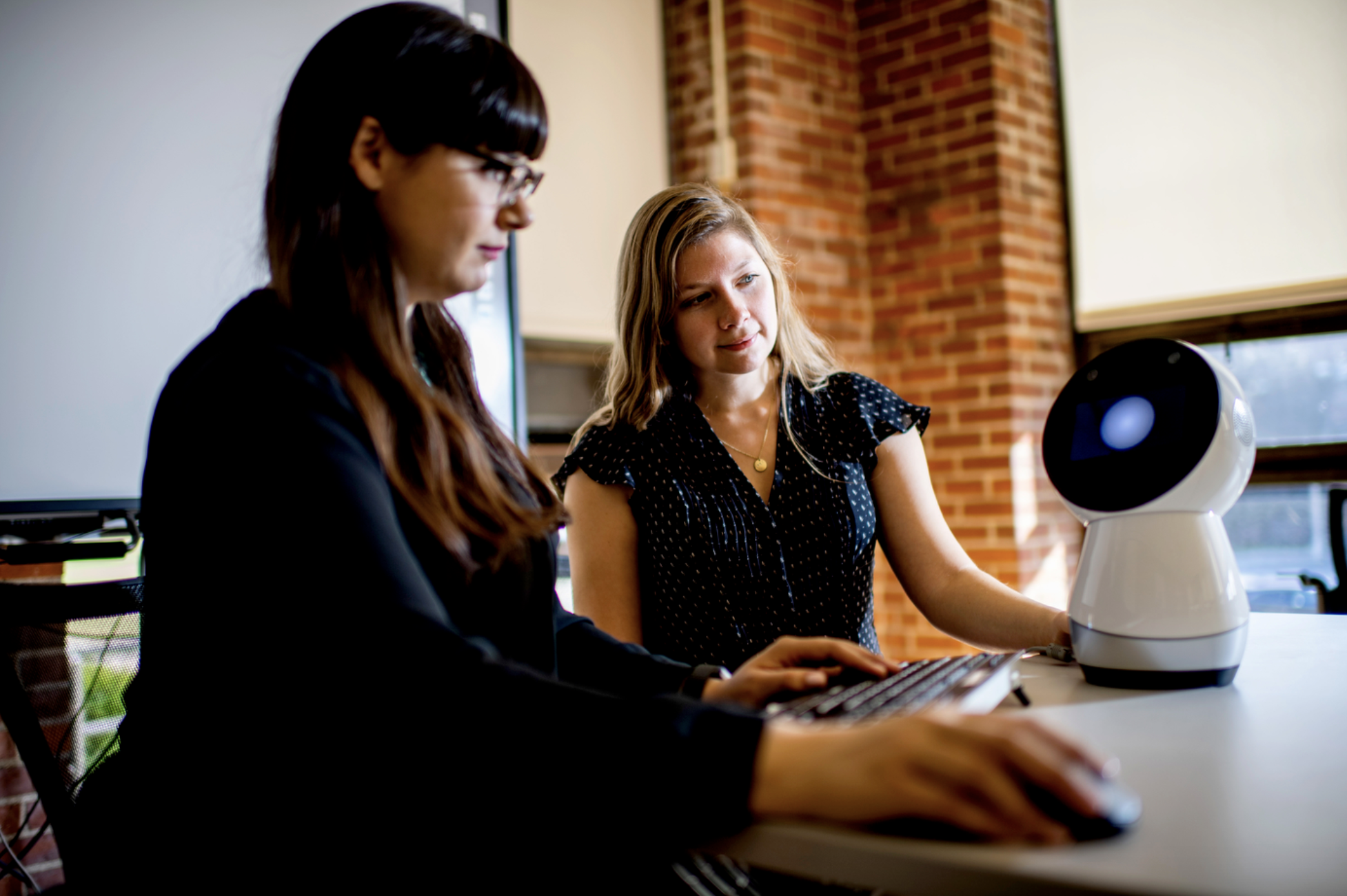At a hospital in Bedford, Massachusetts, Jibo asks a group of veterans how they’re doing. They tell Jibo they’re in a lot of pain and Jibo reminds them that stretching helped them the other day. Perhaps they’d like to try it again today?
As Jibo—who is a robot, by the way—guides the veterans in a yoga exercise, Arielle Scoglio, a doctoral student studying population health at Northeastern, analyzes how the veterans interact with Jibo, and how receptive they are to talking to it and taking instruction from it.
“The hope is to take that preliminary data to improve the programming on the robot and then hopefully allow veterans to take some of the robots home with them and test them out using them as an adjunct to treatment,” she says.
Scoglio, whose research at Northeastern focuses on the social determinants of health, including, for example, how violent experiences affect mental health, works part-time at the Edith Nourse Rogers Memorial Veterans Hospital. She and her colleagues recently published a literature review that looked into how social robots—robots designed to interact with people socially, while also helping them to manage their physical and psychological well-being—are being used in the study and treatment of mental health and well-being.
“It seems like an exciting new technology platform that has the possibility for multiple uses in the health field,” Scoglio says. “Robots are used a lot in terms of being physical assistants, but as artificial intelligence is progressing more, there’s more opportunity to test out social aspects and companionship.”




